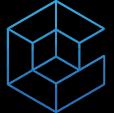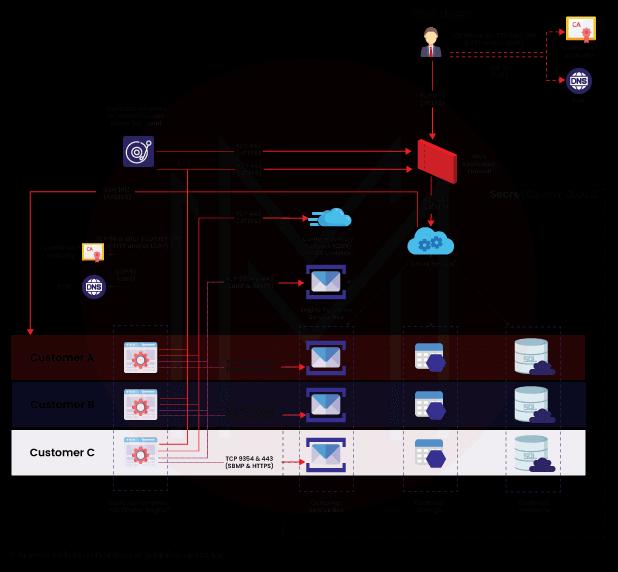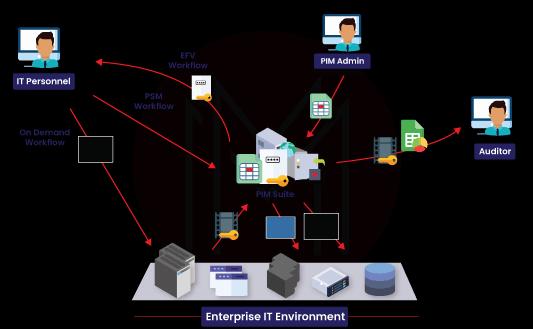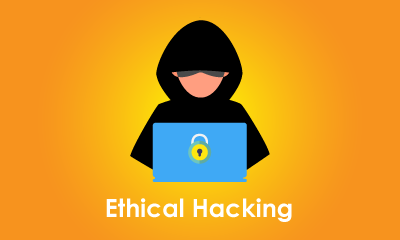Thycotic or CyberArk - which is better? To remain competitive, today's businesses require the best IT Management Software available. This article assists you in selecting the best product by allowing you to compare Thycotic with CyberArk down to the individual module level.
Employees can generate and store distinct passwords for multiple accounts in one encrypted vault using business password management technologies. Let's compare two market-leading password management services
Thycotic vs CyberArk - Table of Contents
- What is Thycotic?
- What is CyberArk?
- What is a Thycotic Secret Server?
- Thycotic Secret Server Cloud Architecture
- What is CyberArk Platform?
- CyberArk Architecture
- Thycotic VS CyberArk - Comparison
- Platforms Supported
- Privileged Access Management Features
- Integrations
What is Thycotic?
What is CyberArk?
 CyberArk is a publicly-traded data security firm that specializes in identity management. The technology of the company is largely used in the financial services, energy, retail, healthcare, and government sectors.
CyberArk is a publicly-traded data security firm that specializes in identity management. The technology of the company is largely used in the financial services, energy, retail, healthcare, and government sectors.[Related Article: Wallix vs Cyberark]
What is Thycotic used for?
Thycotic protects your Windows and Mac systems from endpoint attacks like malware and ransomware. Endpoint privilege management and security solutions are provided by this company. Ensures application control with the least amount of privilege. Allows you to administer administrative user groups.
What is a Thycotic agent?
The core agent is in charge of all endpoint reporting and communication monitoring. The Application Control and Local Security Agents are the worker agents, whereas it is the controlling agent.
What is a Thycotic Secret Server?
Thycotic Secret Server (SS) is a Privileged Access Management solution that can be deployed and managed quickly and easily. You may use Secret Server to automatically find and manage your privileged accounts using a straightforward interface, protecting your entire organization from harmful activities. Secret Server enables security and IT operations teams the flexibility they need to secure and manage all types of privileges, including the administrator, service, application, and root accounts. Secret Server allows you to create a password vault, configure granular permissions, manage secrets, and govern privileged account access. Secret Server is, in reality, a full-featured PAM solution that can be used on-premises or in the cloud.
| Enroll in our Thycotic Secret Server Training Course today and develop a strong foundation in Thycotic Secret Server. |
What exactly is a 'Secret'?
All of the information you keep on the Secret Server is referred to as "Secrets." We'd state "You can add new Secrets and share Secrets" instead of "You can add new passwords and share passwords." This is due to the fact that you are not limited to password storage. Secret Server can also be used to store file attachments, credit card details, door codes, and much more.
Why are passwords so important?
Many passwords are used by business units to get access to critical company data. Most of the time, these passwords aren't "strong," and they may be readily hacked, either directly or through phishing attacks, such as calling a marketing department employee and stating they need to verify her account details, including her login and password. These attacks never end well for the company or the individuals affected. When it comes to strong passwords, it's always best to be safe than sorry. We understand that changing habits is difficult and that this will have an influence on how you access various accounts, but there are a few reasons why you should use Secret Server.
- It's simple to understand. You have an easy-to-navigate Basic Dashboard interface, and you can add new passwords or adjust existing passwords at any moment.
- Launchers and browser plugins are available. Simply click a Launcher from within Secret Server, or go to a webpage and click the bookmarklet, and Secret Server will immediately log you in. You'll never have to type in that long Twitter password manually again.
- You get to work in a group. Both Tarun and Ashok require access to the Indeed.com account in order to submit job applications. Now they can both access the Secret Server credentials, and if the password changes, they will always have the most up-to-date credentials.

Thycotic Secret Server Cloud Architecture
Service Buses: Unless outbound firewall rules are in place, IP address whitelisting is not required.
Web Application Firewall (WAF): Unless outbound firewall rules are in place, IP address whitelisting is not required. The public IP address is assigned based on the user's physical location.
Content Delivery Network (CDN): Unless outbound firewall rules are in place, IP address whitelisting is not required. For all regions, there are edge nodes:
RADIUS: If RADIUS authentication is enabled, inbound whitelisting is required. On the RADIUS server, port 1812 must be open for inbound connections. The RADIUS server might be open to the public or have port forwarding set up so Secret Server Cloud can connect to it.
Distributed Engine (DE)
An SSH proxy can be configured on the DE if external clients need to connect to internal SSH or RDP endpoints. TCP port 22 on the DE server must also be available for inbound connections, as well as the required settings to allow inbound connections from the public Internet.
Certificate CRLs
Unless outbound firewall rules are in place, whitelisting is not required. Access to CRL distribution sites is required if whitelisting is required.
What is CyberArk platform?
CyberArk allows you the freedom to organise accounts and store them in multiple Safes based on your own organizational needs. Authorized users can create and modify Safes in CyberArk, as well as manage Safe members and their authorizations.
What’s CyberArk Used For?
CyberArk is essentially a security measure for the management of password and privileged account protection. It protects privileged accounts in enterprises by automatically keeping track of passwords. To successfully guard against malware and hacking threats, you can utilise the CyberArk solution to maintain and manage data by rotating everyone’s credentials of key accounts. Because it is a highly protective device, CyberArk is used in enterprises just like financial services, healthcare, energy, retail, and others. CyberArk has earned such a solid reputation that it is used by nearly half of the Fortune 500 firms worldwide.
| Want to Become an Expert in CyberArk? Then visit here to Learn CyberArk Online Training |
What is a Privileged Account, and how does it work?
A privileged account has access to sensitive data such as credit card details, social security numbers, and personal health information (PHI). However, the type of protected data in the business determines the interpretation of a privileged account in a broader sense. Privy accounts in enterprises include privileged user accounts, local admin accounts, emergency accounts, domain admin accounts, service accounts, and application accounts.
CyberArk Architecture

The CyberArk Privileged Access Security system is built on a foundation of multiple layers that give enterprises with exceptionally secure options for password storage and sharing. These tiers include firewalls, VPNs, Access Control, Authentication, and Encryption, to name a few.
The essential elements of the architecture are as follows:
Storage Engine: Storage engine stores the data, which is also called a vault or a server. It also guarantees the protection of data and that access is controlled and validated.
Interface: The interface is responsible for communicating with the storage engine as well as providing access to users and applications. To interact between the storage engine and the interface, the vault protocol is used, which is actually a secure CyberArk protocol.
The following components make up CyberArk:
Digital Vault: It is the network's most secure area for sensitive data storage as it is pre-configured and it is simple to use.
Password Vault Web Access: This is a web application that allows you to manage your privileged credentials. As part of password management, you can utilize this component to create new privileged passwords. A dashboard is included in the user interface, which allows you to keep track of the security solution's performance. It also has a graphical representation of the managed passwords.
Central Policy Manager: This component automatically changes current passwords and replaces them with new ones. Also, password verification is performed and reconciliation on remote workstations.
Privileged Session Manager: The Privileged Session Manager component gives centralized access to privileged accounts. It also enables privileged sessions to be started from a control point.
Privileged Session Manager for Web: This component enables enterprises to protect access to a wide range of apps, cloud platforms, and services in a uniform manner.
Privileged Threat Analytics: The CyberArk Privileged Access Security (PAS) platform's Privileged Threat Analytics component monitors continuously how privileged accounts need to be used. It also monitors accounts that aren't managed by CyberArk to check if any symptoms of a threat are there.
Password Upload Utility: By uploading numerous passwords to the Privileged Access Security system, the vault-building process is sped up and automated.
SDK Interfaces: The SDK interfaces are Application Password SDK, Application Server Credential Provider and Application Password Provider. By storing passwords centrally in the Privileged Access Security Solution, the Application Password SDK, for example, eliminates the need for storing passwords in applications. The Application Password Provider, on the contrary, is a local service where credentials are accepted from the vault and grants quick access to them. The Application Server Credential Provider interface manages credentials for application servers saved in XML files in an automated and secure manner.
| Check out: CyberArk Interview Questions |
Thycotic VS CyberArk - Comparison
| Thycotic | CyberArk |
| Footprints with a long history or a large footprint | Designed to make things easier. |
| It's difficult to assess. | It's simple to compare and contrast |
| Installing it is difficult. | simple to set up in a matter of minutes |
| Getting up to speed can take weeks or months. | Day one's findings |
| It is frequently necessary to hire an expensive consultant. | There's no need to consult anyone. |
| To handle properly, you'll need to do certain measures. | In only a few clicks, you'll be able to handle anything. |
| To function, employees must undergo intensive training. | There is no need for training. |
| The user manual is 1000 pages long. | A simple guidebook that is normally used as a reference just once in a while |
| Slow, multi-tiered support | Experts respond quickly. |
| Initially, there is a significant investment. | Cloud-based, cost-effective solution |
Platforms Supported
| Thycotic | CyberArk |
|
|
Pricing
Free trial is available for both Thycotic ad Cyberark
Privileged Access Management Features
| Thycotic | CyberArk |
|
|
Integrations
| Thycotic | CyberArk |
|
|
Conclusion
Reviewers found Thycotic Secret Server to be easier to use, set up, and administer when comparing the two systems. CyberArk will be a more comprehensive solution, with more professional support services, broader adoption, more alliance relationships and integrations with third parties, a more mature offering across many corporate requirements, and a higher likelihood of being around in ten years.
 On-Job Support Service
On-Job Support Service
Online Work Support for your on-job roles.

Our work-support plans provide precise options as per your project tasks. Whether you are a newbie or an experienced professional seeking assistance in completing project tasks, we are here with the following plans to meet your custom needs:
- Pay Per Hour
- Pay Per Week
- Monthly
| Name | Dates | |
|---|---|---|
| CyberArk Training | Feb 28 to Mar 15 | View Details |
| CyberArk Training | Mar 03 to Mar 18 | View Details |
| CyberArk Training | Mar 07 to Mar 22 | View Details |
| CyberArk Training | Mar 10 to Mar 25 | View Details |

Soujanya is a Senior Writer at Mindmajix with tons of content creation experience in the areas of cloud computing, BI, Perl Scripting. She also creates content on Salesforce, Microstrategy, and Cobit. Connect with her via LinkedIn and Twitter.
















